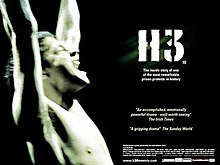
HM Prison Maze was a prison in Northern Ireland that was used to house paramilitary prisoners during the Troubles from August 1971 to September 2000. On 15 October 1974 Irish Republican internees burned 21 of the compounds used to house the internees thereby destroying much of Long Kesh.

A hunger strike is a method of non-violent resistance where participants fast as an act of political protest, usually with the objective of achieving a specific goal, such as a policy change. Most hunger strikers will take liquids but not solid food. Hunger strikers that do not take fluids are named Dry hunger strikers.

The 1981 Irish hunger strike was the culmination of a five-year protest during the Troubles by Irish republican prisoners in Northern Ireland. The protest began as the blanket protest in 1976, when the British government withdrew Special Category Status for convicted paramilitary prisoners. In 1978, the dispute escalated into the dirty protest, where prisoners refused to leave their cells to wash and covered the walls of their cells with excrement. In 1980, seven prisoners participated in the first hunger strike, which ended after 53 days.
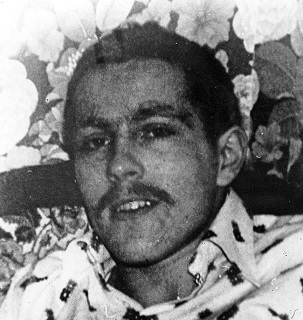
Francis Joseph Sean Hughes was a volunteer in the Provisional Irish Republican Army (IRA) from Bellaghy, County Londonderry, Northern Ireland. Hughes was the most wanted man in Northern Ireland until his arrest following a shoot-out with the British Army in which a British soldier was killed. At his trial, he was sentenced to a total of 83 years' imprisonment; he died during the 1981 Irish hunger strike in HM Prison Maze. Hughes was one of 22 Irish republicans who died on hunger-strike between 1917 and 1981.

Anti H-Block was the political label used in 1981 by supporters of the Irish republican hunger strike who were standing for election in both Northern Ireland and the Republic of Ireland. "H-Block" was a metonym for the Maze Prison, within whose H-shaped blocks the hunger strike was taking place.

Joseph McDonnell was a volunteer in the Provisional Irish Republican Army (IRA) who died during the 1981 Irish hunger strike.
The blanket protest was part of a five-year protest during the Troubles by Provisional Irish Republican Army (IRA) and Irish National Liberation Army (INLA) prisoners held in the Maze prison in Northern Ireland. The republican prisoners' status as political prisoners, known as Special Category Status, had begun to be phased out in 1976. Among other things, this meant that they would now be required to wear prison uniforms like ordinary convicts. The prisoners refused to accept the administrative designation of ordinary criminals, and refused to wear the prison uniform.

The dirty protest was part of a five-year protest during the Troubles by Provisional Irish Republican Army (IRA) and Irish National Liberation Army (INLA) prisoners held in the Maze Prison and a protest at Armagh Women's Prison in Northern Ireland. In March 1978 some prisoners refused to leave their cells to shower or use the lavatory because of attacks by prison officers, and the inmates would later start smearing excrement on the walls of their cells.
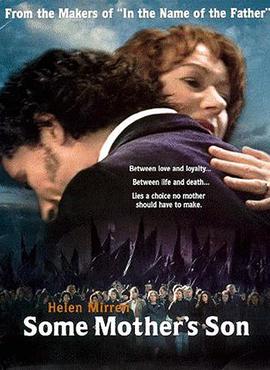
Some Mother's Son is a 1996 film written and directed by Irish filmmaker Terry George, co-written by Jim Sheridan, and based on the true story of the 1981 hunger strike in the Maze Prison, in Northern Ireland. Provisional Irish Republican Army (IRA) prisoner Bobby Sands led a protest against the treatment of IRA prisoners, claiming that they should be treated as prisoners of war rather than criminals. The mothers of two of the strikers, played by Helen Mirren and Fionnula Flanagan, fight to save their sons' lives. When the prisoners go on hunger strike and become incapacitated, the mothers must decide whether to abide by their sons' wishes, or to go against them and have them forcibly fed.
Denis O'Beirne Faul, was an Irish Roman Catholic priest best known, in the course of the Northern Ireland Troubles, for publicising security-force abuses and, controversially among Irish republicans, for his role, with the families of prisoners, in bringing to an end the 1981 Irish Hunger Strike. In 1995, his church awarded him the honorific title of Monsignor.
Jimmy Steele was an Irish republican militant. He was one of the most prominent Irish Republican Army (IRA) men in Belfast after the Irish Civil War who held practically every senior position in the Northern Command of the IRA. Later in life Steele publically denounced the leadership of the IRA which was a prelude to the split in the IRA. Steele founded and edited several Irish Republican publications. Steele spent a large portion of his life in jails as a result of his actions against British security forces.
Patrick Quinn was a volunteer with the 1st Battalion, South Armagh Brigade of the Provisional Irish Republican Army (IRA) who took part in the 1981 Irish hunger strike.
Laurence McKeown is an Irish author, playwright, screenwriter, and former volunteer in the Provisional Irish Republican Army (IRA) who took part in the 1981 Irish hunger strike.
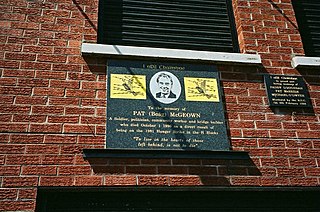
Pat "Beag" McGeown was a volunteer in the Provisional Irish Republican Army (IRA) who took part in the 1981 Irish hunger strike.
Jackie "Teapot" McMullan is a former volunteer in the Provisional Irish Republican Army (IRA) who took part in the 1981 Irish hunger strike.
Between 1 March 1976 and 3 October 1981, Irish republican prisoners in HM Prison Maze carried out a variety of protests against the withdrawal of Special Category Status for prisoners convicted of proscribed "terrorism" offences. These protests culminated in the 1981 Irish hunger strike in which ten prisoners died.

Hunger is a 2008 historical drama film about the 1981 Irish hunger strike. It was directed by Steve McQueen and starred Michael Fassbender, Liam Cunningham, and Liam McMahon.
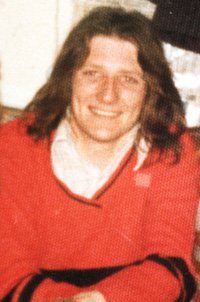
Robert Gerard Sands was a member of the Provisional Irish Republican Army (IRA) who died on hunger strike while imprisoned at HM Prison Maze in Northern Ireland. Sands helped to plan the 1976 Balmoral Furniture Company bombing in Dunmurry, which was followed by a gun battle with the Royal Ulster Constabulary. Sands was arrested while trying to escape and sentenced to 14 years for firearms possession.
In the Altnaveigh landmine attack of 19 May 1981, five British soldiers were killed and their armoured vehicle destroyed by a Provisional IRA landmine at Altnaveigh, a rural area outside Newry in County Armagh, Northern Ireland. The landmine was detonated remotely when the vehicle passed over it. The attack happened during a period of heightened tension over the 1981 Irish hunger strike.
